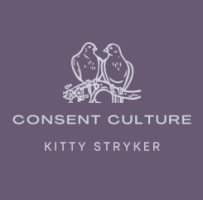Right now, if you care about consent, things are rough out there, especially in the United States, where I live.
We are in a post-Trump world, but he left behind wreckage and trauma, as many abusers do. We are still in the middle of a global pandemic that has offered up many questions about bodily autonomy, what it means, and what we owe to each other. Roe v. Wade has been overturned, and with it, our rights to our own choices around reproduction have been reduced. Trans people are continually targeted by bigoted bills that seek to deny them healthcare, legal protections, and even access to public bathrooms. Workers are fighting for their right to unionize, and being punished for doing so.
While the United States informs my context, working on consent culture has shown me the myriad ways it remains an issue around the world. You can see it in the battles for sex worker rights in South America and India. You can see it in the battle for women’s rights in Iran. You can see it in the imperialist desire to conquer and assimilate Palestine and Ukraine. You can see it in the increasing LGBTQ activism in Japan and Uganda.
Consent culture started as a challenge to and push against rape culture, but it was never just about that. Consent culture is ultimately about power dynamics, accountability, and sustainable community. It asks, “what would the world be like if we centered consent instead of entitlement and crossing boundaries?” It challenges us to believe that the white supremacist capitalist patriarchy that coerces all of us can be and must be dismantled.
I’m Kitty Stryker, coiner of the term consent culture and long-time activist in multiple spheres. I believe most people genuinely want to center consent in their lives, but aren’t sure how to. Success feels overly idealistic, but failure is often presented as terrifying and traumatic. Therefore, my approach to teaching on this topic is to approach it with curiosity, humility, and good faith – I’m not an expert, but another human, just like you, trying to figure all this out.
Curious? Check out my upcoming workbook “Ask Yourself: The Consent Culture Workbook“, or the intersectional anthology “Ask: Building Consent Culture“, both from Thornapple Press. Or read some of the writing I’m curating over on Medium (and feel free to submit your own pieces!) Or follow me on social media and join the conversation.
Will you join me?
Brought to you in part by Slixa
